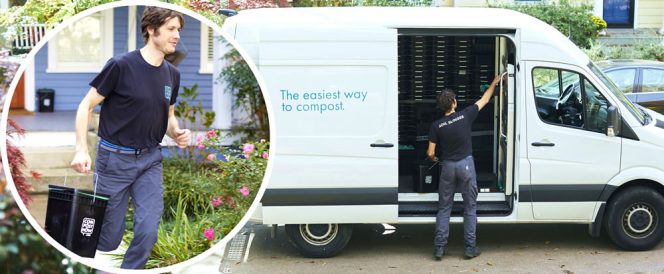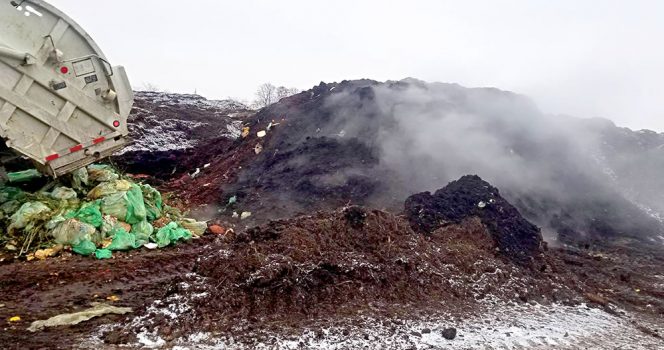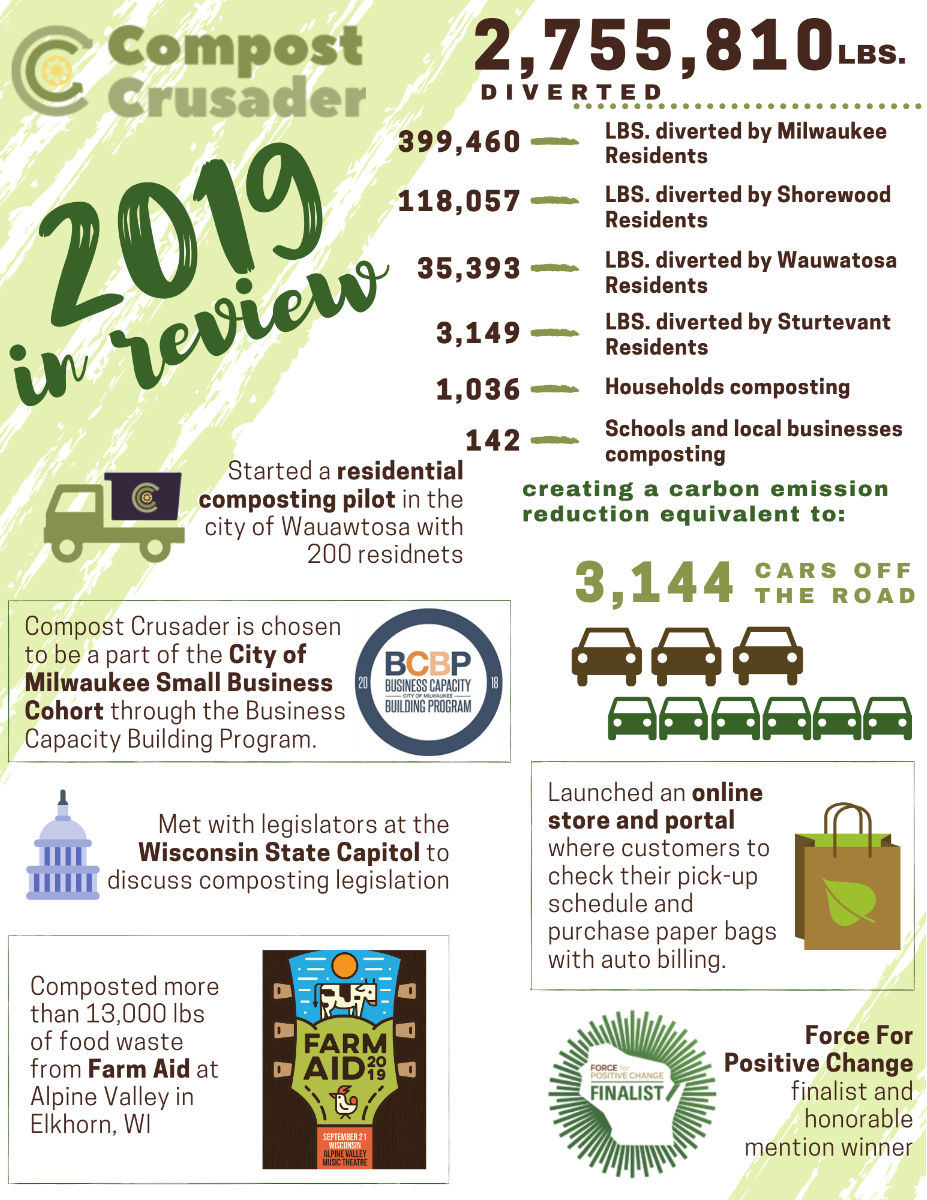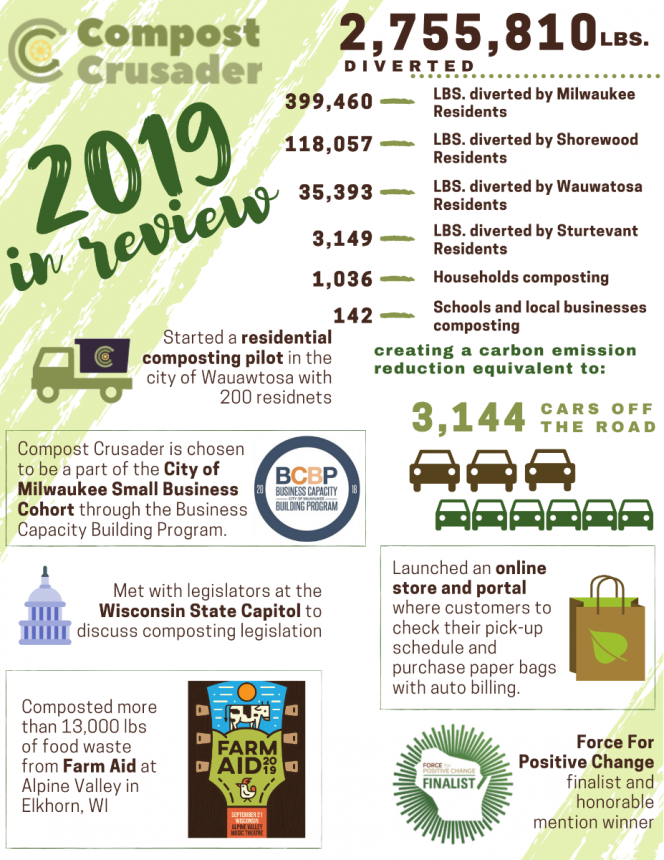
CompostNow offers residential and commercial food waste collection in the Southeast. Over 10.9 million lbs were diverted in 2019. Photos courtesy of CompostNow
CompostNow Raises $2 Million
CompostNow, a composting services company started in Raleigh, North Carolina in 2011, closed a $2 million Series Seed, its third round of funding for the company. A “seed round” refers to a series of related investments in which 15 or fewer investors “seed” a new company with anywhere from $50,000 to $2 million. “The $2 million was raised from investors that represent valuable years of business building experience who are aligned in our mission,” explains David Paull, CompostNow’s Chief Impact Officer.
CompostNow has been in the business of addressing what it calls a “nutrient cycling” problem by collecting food scraps and compostable serviceware from households and businesses (referred to as members) and diverting them to composting. In addition to the Raleigh/Durham region, its services are offered in Atlanta, Charleston (SC), and Asheville (NC). In 2019, over 10.9 million pounds (about 5,500 tons) of compostables were diverted from disposal, creating 2.5 million pounds (about 1,300 tons) of compost, according to CompostNow. The company partners with composting facilities and returns the finished compost back to its members as well as gardens and farms in the communities served.
“For us, it has been important to build a proof of concept and work diligently to address the very complex problem of lost organic matter in our soils,” says Paull. “A key has been building the right ecosystem of partners around this effort including funding partners. We are thrilled to have garnered this support, expertise, and confidence in building and scaling our impact. The funds will be used to continue to invest in equipment, systems, and people and enables CompostNow to continue to innovate and grow with the greater compost movement.”
Rolling Out Residential Collection In Wisconsin

Compost Crusader unloads collected food waste and yard trimmings at Blue Ribbon Organics. The facility recently decided to no longer accept compostable bags and packaging. Photo courtesy of Compost Crusader
Fast forward to January 2020, when we checked in with Tashjian after reading the company’s 2019 year-end newsletter that highlights stats from its residential collection programs. “A lot definitely happened in 2019,” she notes. “We now have 3 municipal curbside collection pilots. Milwaukee is stable at about 500 participants and we have around 300 residents in Shorewood. We added a pilot with 200 households in Wauwatosa. This was an interesting one because the town wasn’t willing to purchase carts so community businesses decided to sponsor the pilot and provide funds for the carts. It’s great to see that support from the private sector in Wauwatosa.”
Compost Crusader uses a 64-gallon cart in Milwaukee for food and yard trimmings, and 32-gallon carts in Sherwood and Wauwatosa for food and soiled paper and some yard trimmings. It has 4 rear-load collection trucks. “The 32-gallon works great because pizza boxes can go in and households can still put some yard material in there,” explains Tashjian. “And we were using certified compostable bags and accepting some compostable serviceware, e.g., fiber trays from a school cafeteria, but in August 2019, Blue Ribbon Organics decided it would no longer accept compostable bags and products. Contamination and concerns with PFAS were cited as the main reasons, along with site capacity restraints. Compost Crusaders had to make a huge shift with our residential and commercial customers, notifying residents immediately and then our commercial accounts. It took a lot of research, but we did find 2-gallon paper liners for the household countertop bins, but ended up losing about 15% of commercial customers. Hotels didn’t want to deal with paper bags and retraining. Hospitals have sanitary reasons for it.”
More details on how Compost Crusader is tackling this challenge, and related developments, in an upcoming BioCycle CONNECT feature.















